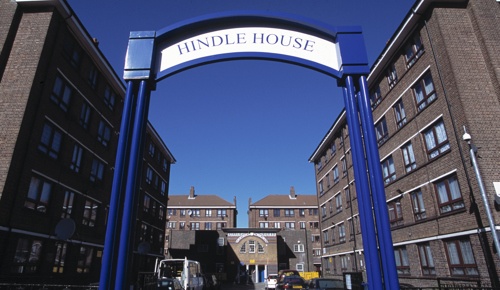
With the new consumer standards driving a swift change in culture within the sector, resident involvement is changing as we know it. Landlords must now give residents the opportunity to influence decision making and to hold us to account.
But at Southern Housing, we’re already ahead of the curve. Our seven principles for successful co-creation show our commitment to ensuring residents are at the heart of everything we do.

1. Be transparent, open and honest
We share all information about the project, aims and limitations to colleagues and residents so that everyone is starting from the same place. Knowledge is power, and being open from the beginning helps us empower participants to contribute meaningfully.
2. Create inclusive spaces
This is about spaces being both physically accessible and emotionally accessible. We do this by holding meetings in a neutral space like a local community centre or café, dressing informally, and avoiding using job titles that might create unhelpful hierarchy. It’s vital that participants, colleagues, and residents alike, feel comfortable to discuss openly and honestly about their experiences.
3. Invite challenge
We are also open to accepting negative experiences of our services. We’re here to build relationships and the way to do that is by listening and taking on board all feedback, good and bad, without defending it.
In more traditional forms of tenant engagement, residents and colleagues tend to be asked for feedback and opinions at the end of a project when a plan has already been drawn up. This puts them in a difficult position of either having to reject a proposal (creating additional work) or accept something they might not be happy with.
4. Involve people from beginning to end
This is key to ensuring residents lived experiences are listened to without us making assumptions on what is wrong with a particular service. This means that projects develop iteratively, meaning we get things right first time. It might take slightly longer but saves time and money in the long run.
5. Be prepared to resource co-creation
Effective co-creation takes time and money, which pays off through properly designed services. We also value participation from our residents, so we offer an incentive to our residents that give up their time to take part.
6. Recognise the value of lived experience
Residents are the only ones who truly know what it’s like to live in our homes and receive our services, and we value their lived experience as equal to the technical knowledge of our colleagues. When redesigning a service, we seek feedback from people who use that service, rather than represent a cross-section of all residents. We also put particular emphasis on hearing seldom heard voices. These are people that might not engage through traditional channels or engagement methods and are often excluded from discussions about their experiences.
7. Constantly review and improve
Designing a service is only the start, once it’s up and running we will continually review the process and make improvements where necessary. We also evaluate our process, measuring ourselves against our seven principles so that our co-creation work continues to deliver results that improve the services we deliver for residents.
How we will drive change
The co-creation team have been using our principles to review our aids and adaptations policy which sets out how we’ll provide reasonable adjustments to our homes, such as fitting a ramp or wider doors, to help residents live independently. Through engaging with residents and colleagues collectively we have identified gaps with our existing processes and have been able to clearly set out recommendations for service improvement.
The project has now moved into the next stage where we’re listening to residents’ experiences of the Disabled Facilities Grant process. This will ensure those with disabilities, elderly, and people with health conditions or impairments can easily access adaptations to support them to live comfortably in their homes.



